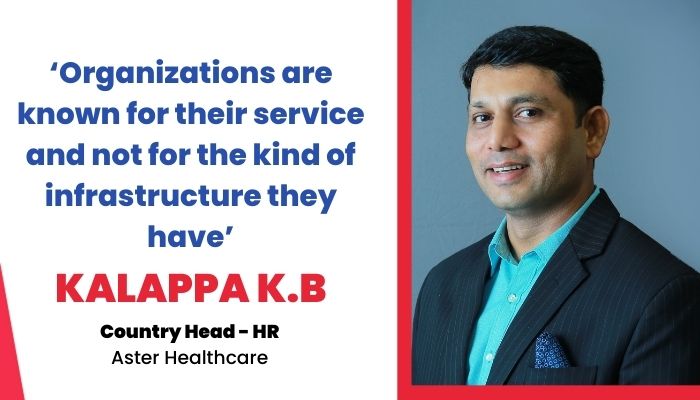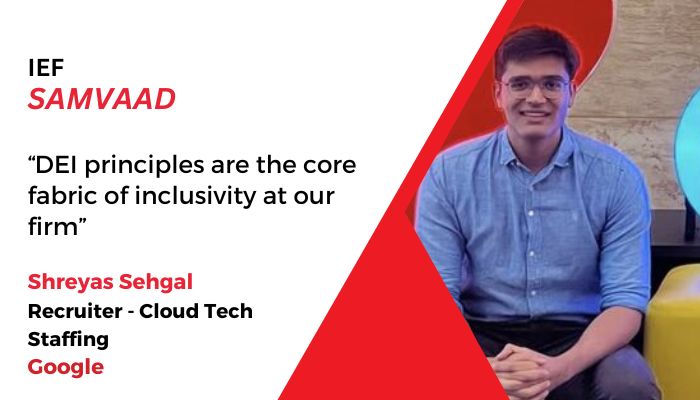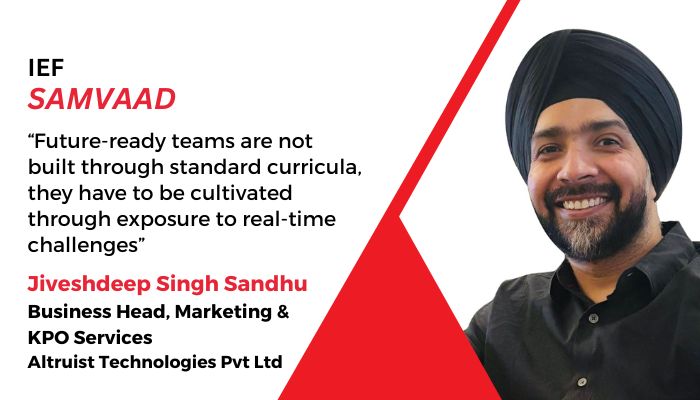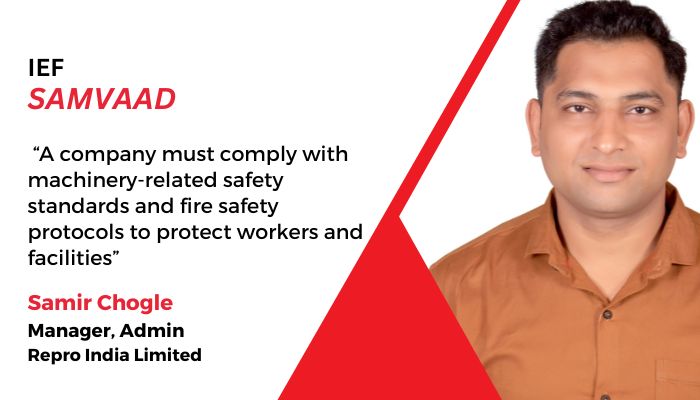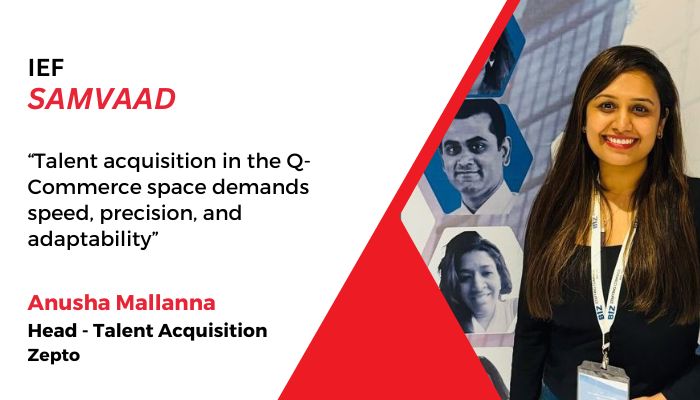Kalappa K B, Country Head HR, Aster India, in a conversation with India Employer Forum on innovation and long-lasting trends in the HR space.
Q. Tell us a little about yourself.
I have close to slightly over two decades of experience. The first decade has been with the hospitality industry, where I’ve worked with hotels like Taj, Oberoi, Hilton and Intercontinental. The second decade happened to be with a startup healthcare organization called Columbia Hospitals, where I worked for close to 12 years as a founding member. I joined Aster Healthcare in 2019 and I head HR for India. Coming from a healthcare background, fitness is ingrained in me. I also love automobiles as a space. I like sports and play most of them.
Q. The last 2 years have seen an incredible strain on the healthcare professionals; what are the steps that can be taken to avoid employee burnout?
When I joined Aster in 2019, we had this pandemic, such an unprecedented event. In fact, we were quite panicked because all the people were going to depend on the hospital. How is the hospital going to respond? How are we going to look after our employees? We started to take a couple of measures or steps to ensure that our employees don’t travel in the same vehicle. If at all they traveled in the same vehicle, probably we will have less number of people in the vehicle. Second, we also ensured that wherever people were staying, we ensured that very few people stay in one room, so that they don’t get affected all at the same time. We also ensured we trained people to make them understand how they’re going to handle the pandemic.
We also trained them in precautionary measures they were going to take. We created a hospital out of a hospital, which means we divided the hospital into two; one side of the hospital was for normal patients and employees, and the other side was only for COVID. We also did rigorous training, all our training programs were virtual. We kept telling our people not to worry, we are here to support them. I can explain in two simple sentences how we dealt with it, but those days were not easy. In fact, even employees were thinking, what if something happens to them? Who’s going to be the breadwinner at home? What if they infected someone at home?
Q. What kind of partnerships/collaborations do you feel have to be established with specific educational institutions to ensure best in breed talent is recruited and a steady talent pipeline is sustained?
Anybody in healthcare who’s been in the industry for a while would have earmarked which are the best schools and colleges in the healthcare space. So, that’s exactly what we have also done. We identified schools and colleges which give the best pedigree of people. So, if I needed to name a few of them, it would be TISS, Mumbai, IIHMR Jaipur and Goa Institute of Management. These are some of the schools from a healthcare perspective which produces the best talent in India. So, one is identifying them, recognizing the right school or the college. Second is to be the first one to get into the campus because if you go through midway or at the last, you will not find the best talent because the best talent could have been taken over by a lot of other potential industries. So, that’s where you need to walk in, probably the first two or the first three to walk in and choose the best. Obviously, you need to have an assessment center or an interviewing technique where you pick the best brains out of that school, because that’s more important. So, once you’ve done this, you need to plan on how to onboard them? How does your management training program work? It is important to handhold them, mentor them and ensure that the learning happens to the best of the knowledge. Also ensure that they go through the drill well so that they will be the future leaders within the organization.
Q. What are the most crucial aspects of being an HR Head? Could you tell us what kind of innovations are seen in the HR space?
The so-called human resource department is a thankless job because people’s expectations are really high. Even if you think you have done your best, on the other hand, people would say that they’re not happy about what you’ve done. So, you’re in a space where you’re going to give your best. You need to ensure that human beings are treated as human beings first, have that humility and respect for people. Second is when you get them onboard, please ensure that you train them, train them, train them all the time, because if you don’t you will have people who are going to serve the customer, and probably you’re not going to deliver the best of the services, because organizations are known for their service. Organizations aren’t known for the kind of infrastructure you have. So, service becomes a crucial part of this entire engagement. The other thing about the innovation piece in the HR space, bots is something which is currently most prevalent, wherein people look at How do I answer people all the time? How do I connect with people all the time? While HR can be open from morning eight to evening six, what happens after that? So, bots are one of the things which are taking shape in most of the organizations. We’re looking at how we serve our internal employees and their queries and how their issues are dealt with from time to time. So, digitization of the entire HR is the other part, from talent acquisition to performance appraisal to employee engagement, how do you digitize this entire process? So, there is no manual work that way, and you still connect with people either digitally or through telephone.
Q. Recently, there has been a great amount of change in how the HR function is perceived in companies; what are the long-lasting trends that you see coming out of this shift?
If you look at it now, we’re kind of getting into a new office. Now in our new office, for example, if I have 60 people, I have only 30 seats, which means I’m looking at a hybrid workforce model. So, I’m not looking at if I have 10 people in HR, I don’t expect all the 10 people to come to the office. I’m telling people that at any point in time, I have a roaster. The people who work on Monday don’t come to the office on Tuesday. Those who work on Tuesday don’t come to the office on Wednesday. So, I have people coming three days a week to the office, three days people working from home. I have that flexibility for people, which means they can manage their workflow balance really well. Secondly, I also bring discipline because when you’re not coming into the office, you’re missing out on what is called learning by seeing. That’s where a hybrid model is here to stay, because people get the flexibility to come to the office and spend time at home. Also, the new trend is D&I, diversity and inclusion is the other piece which we’re focusing on across the world. People are focusing on the DNA and that’s going to be the next best thing which is going to happen. Be it people with special needs, harmony of your workforce of women, all those things come to take the center stage, because that’s what’s going to drive the future.
Watch the full interview: In Conversation with Kalappa K B, Country Head HR, Aster India
About Kalappa K B
Kalappa K B has joined Country Head HR – Aster- India. He is responsible for talent acquisition, training development, employee engagement, talent management, compensation, benefits, rewards, leadership initiatives and overall organizational Development. He has over 2 decades of professional experience in areas such as Talent Management, HR digitization, Culture building, Mentoring, Coaching, Training and Development.
Prior to joining DM Aster HealthCare India, Kalappa was with the Columbia Asia Hospitals over a decade and he has been instrumental in establishing Human Resources function since the inception, apart from healthcare he has been with the hospitality industry, over a decade. Kalappa graduated in 1996, with a PGD in Personnel Management and Industrial Relations from Bangalore University. He is a life member of NHRD, NIPM and ISTD Bangalore chapter. He has keen interest in cycling and running. His other interests include fitness, automobile and travel.

